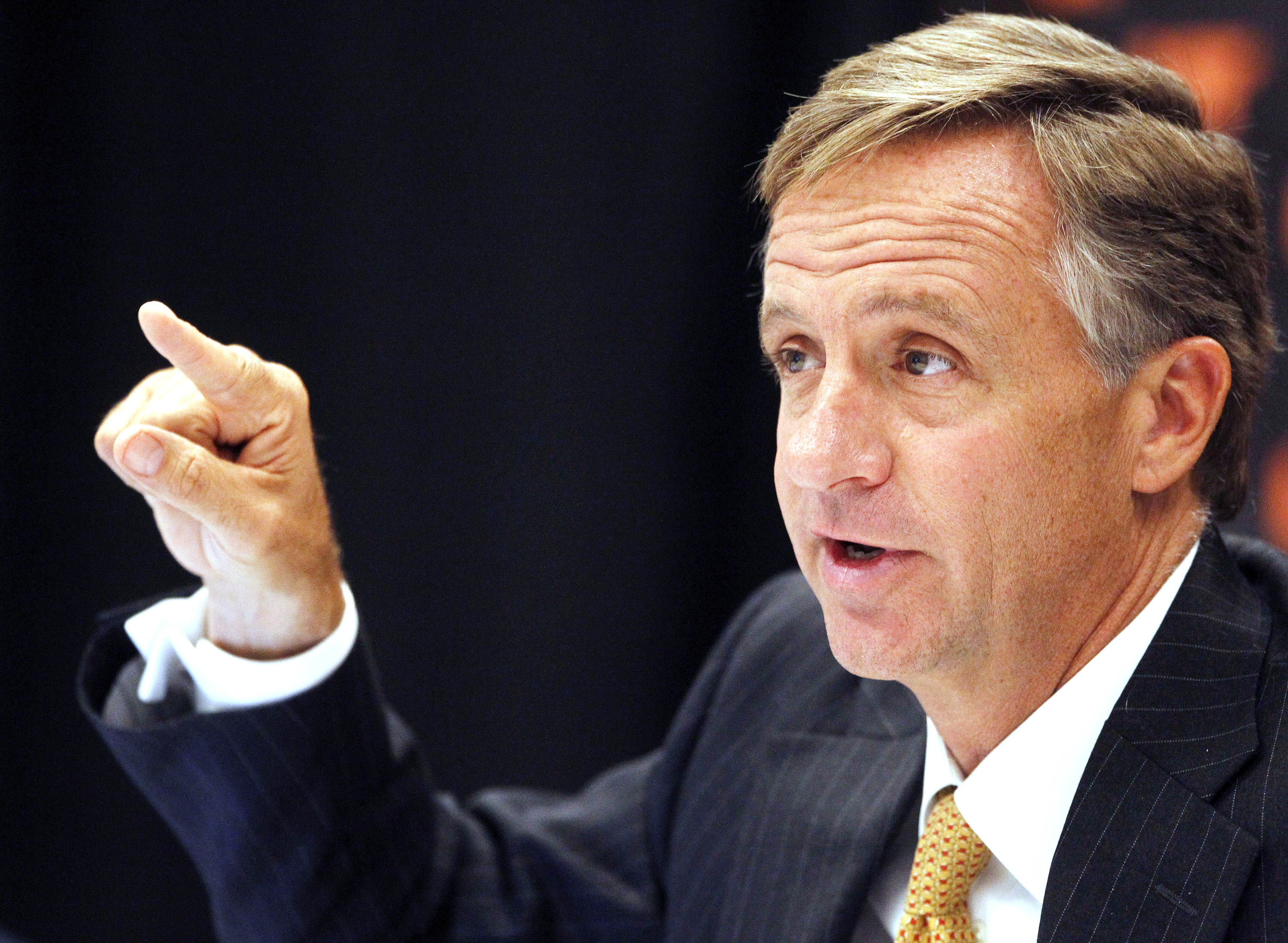NASHVILLE-During a state legislative debate this spring over requiring online retailer Amazon.com to collect sales taxes, Senate Finance Committee Vice Chairman Douglas Henry felt the need to 'fess up.
The Nashville Democrat, first elected to the General Assembly in the 1950s, acknowledged he hadn't paid sales taxes on books he bought from out-of-state online retailers.
"I need to write you a check for $100," Henry told Revenue Commissioner Richard Roberts. He said later he actually paid about $97.
But Henry's decision is pretty rare, state Revenue Department figures show.
Despite billions of dollars of online purchases, virtually no Tennessee consumers pay the "use tax" owed on items purchased from retailers that don't collect sales tax.
State figures show the state Revenue Department received only 3,041 consumer use tax returns in 2011. Those taxpayers remitted $4.78 million -- about 1.3 percent of the estimated $365 million in sales taxes that went uncollected by out-of-state online retailers for the year.
Most payments appeared to be for big-ticket items such as cars, trucks, boats and furniture purchased not online, but across the state border, state figures show.
IF NOT SALES, WHAT?
With no general income tax, Tennessee depends on its 7 percent sales tax for about 60 percent of its general fund. Local governments can levy up to 2.75 percent more.
A deal allowing Amazon to build fulfillment centers in Hamilton and Bradley counties and not collect state sales tax outraged traditional retailers, and several powerful lawmakers revolted. The forgone revenue has been estimated at $10.6 million to $40 million.
Gov. Bill Haslam persuaded Amazon to agree to begin collecting sales taxes in 2014, absent a national solution regarding Internet sales. He and other lawmakers, as well as Amazon officials, have vowed to push the state's congressional delegation to give states the authority to compel all online retailers to collect sales tax.
Henry said that without a national solution, state sales tax collections will continue to shrink relative to the overall economy.
The state needs a reliable revenue source to pay for schools, roads and other services.
In the past, some proponents have argued unsuccessfully for a general state income tax, but such a tax is hugely unpopular. Henry said there's an effort under way to seek a state constitutional amendment banning a general income tax.
That leaves business taxes, but Henry noted the rates must remain competitive with those of other states.
Another option is to tax property, Henry said.
He noted Tennessee once had a statewide property tax. In fact, Henry said, the General Assembly in 1797 passed it as the state's first tax.
It was repealed in the 20th century, although cities and counties still use it to pay for their operations, he said.
SMALL FISH SWIM FREE
Meanwhile, the state shows relatively little appetite for going after consumers who make small online purchases, noted Dick Williams of Tennesseans for Fair Taxation.
That may make sense, Williams said.
"Part of the rationale for this is the tax is due, but it's not realistic for the Revenue Department to spend a lot of time raising what individually would be small amounts," Williams said. "Collectively it can be a significant amount."
The Revenue Department does seek to track large purchases through third-party research and information exchanges with federal and state agencies, including U.S. Customs and the Federal Aviation Administration.
Linda Kelley, the department's director of taxpayer and vehicle services, said officials last year issued 1,913 assessments for unpaid consumer use tax, including 267 assessments on aircraft.
And there's a cost to not paying the tax, whether because of negligence or fraud, Kelley said in an email.
"If the failure to pay taxes is determined to be due to negligence, the taxpayer would face a penalty in the amount of 10 percent of the tax due along with interest," she wrote.
In a fraud case, "the taxpayer would receive a 100 percent penalty along with the interest due."
So what does Revenue Commissioner Roberts make of the situation?
"Obviously it is a concern to the State of Tennessee," Kelley's email stated. "However we believe this matter is best addressed at the federal level."
Sen. Randy McNally, the Oak Ridge Republican who is chairman of the Senate Finance Committee, isn't surprised at the low rate of compliance.
"A lot of times people will order things and then they really don't notice there's not tax charges [and] that they owe the tax," McNally said.
Henry said he knew about the tax but added, "I wasn't paying attention."
No other Tennessee lawmaker has acknowledged being a scofflaw.

